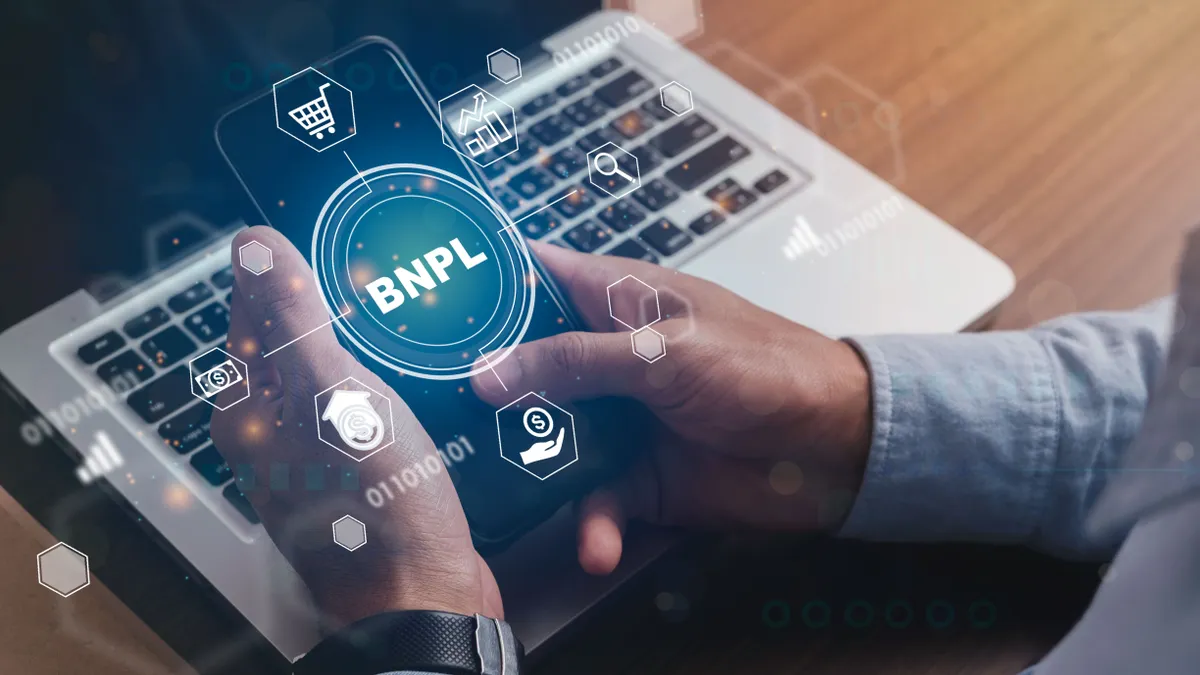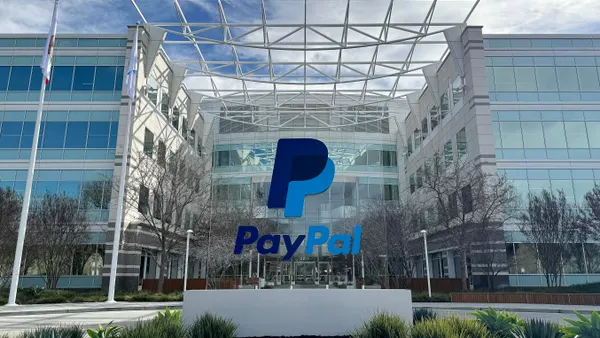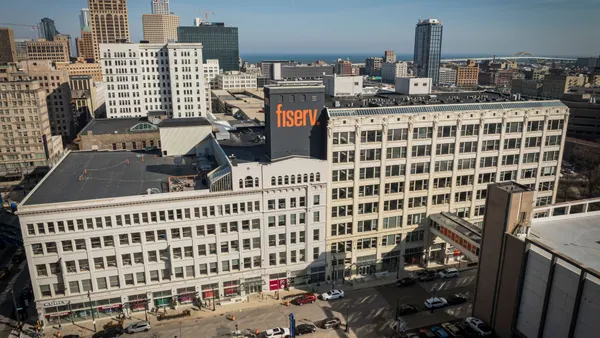Dive Brief:
- The share of U.S. consumers who’ve used buy now-pay later services has jumped over the past year: 67% of respondents polled this year have used the service, compared to 47% who said they had in 2021, according to a Marqeta report.
- About 63% of all respondents have used credit cards to make ends meet. Less than half (46%) said they’d turned to BNPL for the same reason, per the company’s Sept. 22 State of Credit report. In July, Marqeta polled 4,000 U.S., Australian and U.K. consumers; that included 2,000 in the U.S.
- The share of respondents who said their average BNPL purchases were under $50 declined from 17% in 2021 to 12% this year. At the same time, the portion of consumers who said their average BNPL purchase was between $251 and $500 increased, from 15% last year to 20% this year, the report revealed.
Dive Insight:
Marqeta's report points to consumers acquiring more credit cards. The share of consumers who only have one credit card fell, from 49% in 2021 to 39% this year. Conversely, the portion of respondents with two credit cards increased, from 31% to 35%, and those with more than three credit cards rose, from 21% to 27%, per the survey results. U.S. consumers were more than twice as likely as U.K. or Australian consumers to have multiple credit cards.
Meanwhile, half of all of those polled had used BNPL within the last 90 days, and the same share of 18 to 25 year olds had used it in the last 30 days, Marqeta said. About 35% of respondents said they use BNPL services more than credit cards.
Marqeta's survey also offers insights into the kinds of buy now-pay later transactions consumers are seeking. The report noted that consumers were interested in using BNPL platforms to pay for dentistry (30%), car purchases (29%), home renovation (27%), travel (25%) and pet care (25%).
Besides retail, buy now-pay later services have also found their way into the healthcare industry. Citizens Pay, the BNPL arm of Citizens Bank, announced plans to introduce its installment payment service for healthcare providers last year. Earlier this year, BNPL firm Sezzle said it was partnering with WellNow Urgent Care to offer patients interest-free loans.
Though a May report from Grand View Research predicted that the buy now-pay later market will surpass $39 billion by 2030, BNPL providers are facing regulatory scrutiny and rising costs as the industry grows. San Francisco-based Affirm saw a sharp increase in marketing and sales costs in fiscal year 2021, although those expenses declined during the company’s FY22 fourth quarter ending June 30. Swedish Klarna let go of 700 employees earlier this year and saw its valuation tank when it raised venture capital in July.
As the BNPL industry attracts customers, it has also garnered more attention from advocacy groups and regulators looking to protect consumers from staggering debt. A working paper released by U.K. researchers in March found that almost 20% of U.K.-based credit cardholders used their credit cards to make BNPL transactions, a practice that the researchers say could send consumers into a "debt spiral." In the U.S., the Consumer Financial Protection Bureau said this month that it is considering creating rules to ensure that BNPL providers follow the same laws as credit card companies.
Marqeta has taken its cards-as-a-service business into the buy now-pay later industry through its collaboration with Klarna. In June, the two companies teamed up to create a physical card.
Clarification: This story was updated to more accurately reflect Affirm’s sales and marketing expenses.










